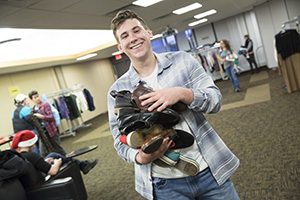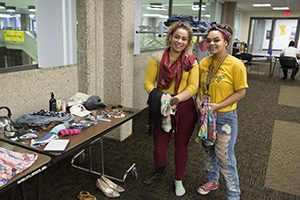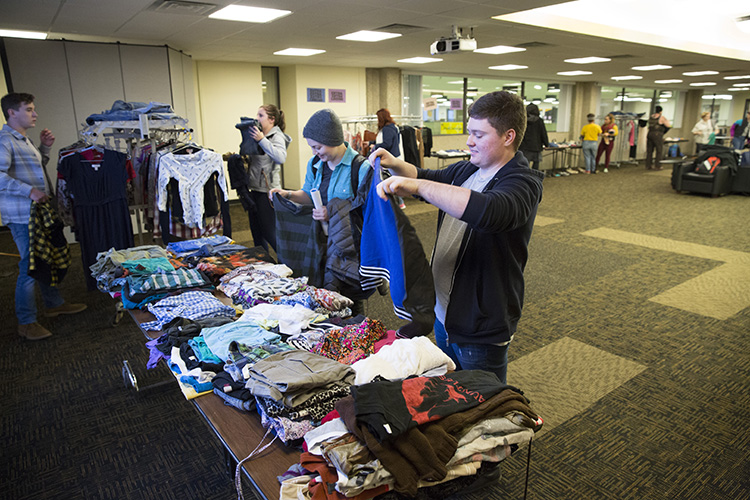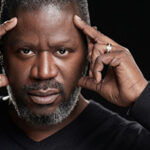This year marks the 15th anniversary of the University of Wisconsin-Milwaukee’s LGBT Resource Center. A strong source of education and reform in the UWM community since its inception, the center has gone far beyond the simple support resource that its title might suggest.
“We’re focused on establishing an environment that embraces and uplifts the voices of LGBTQ+ folks as well as raising the importance of social justice and making sure there’s equity,” said Jennifer Murray, director of the resource center.
Located on the ground floor of the UWM Student Union, the resource center is a welcoming space for LGBTQ+ students. Beyond its impressive library, which offers students books covering topics such as queer theory, intersectionality and transgender rights, the resource center’s 10-person staff (two full-time employees and eight student workers) are on hand to talk through the concerns and situations that students might face, as well as helping them adapt to life on campus.
More than 1,100 students have utilized the center’s services already this semester. And resource center staff have provided 21 workshops for about 850 people, providing information about the needs of lesbian, gay, bisexual and transgender students and ways to address their concerns.

For some, the center is critically important.
“I went to a high school that wasn’t super-welcoming for LGBTQ people, so I didn’t really get the chance to explore my identity until I got to college,” said Eli Walker, a transmasculine student who is a junior studying stage management in the Peck School of the Arts. “It was really formative to have a center; a group of people that made me feel like I wasn’t alone.”
As the resource center’s education coordinator, Walker oversees initiatives like the L.I.F.T. (LGBTQ+ and Intersectionality Focused Training) program, which educates the campus community at large about terminology, different identities and how to be respectful to LGBTQ+ colleagues (for instance, avoiding microaggressions). He considers these inclusive, outward-geared sessions as important to the resource center’s mission as its work with LGBTQ+ students who frequent the center.
“Where I feel we’re doing our best work is when someone comes in after a program and says, ‘It opened my eyes about my own identity,’ or that it taught them about a friend who has a different identity and how they can be better to them,” Walker said.
The resource center is, of course, also focused on providing programming for LGBTQ+ students. While the center is perhaps best known for the annual drag show, events like Lavender Graduation and the Queer Clothing Swap also aim to foster a sense of community. Guest speakers, film screenings and discussions further their educational goals.
An addition to the programming lineup this year has been November’s Trans Month of Empowerment. The month has featured events like the trans-inclusive swim night at Klotsche Center and a discussion on transgender rights named the T Party, and wraps up Nov. 30 with a talk from acclaimed intersex activist Pidgeon Pagonis. Center leaders consider the series a vital addition to the calendar.
“We try and get feedback on what the resource center hasn’t provided for specific LGBT communities and how we can create these opportunities for discussion, empowerment and discovery,” said Jeanette Martín, assistant director of the resource center. “I think that’s been a big piece of growth from last year — hearing the needs of our trans, non-binary and gender nonconforming students to create that space to connect with one another and feel empowered.”
Beyond their work with students, the resource center has pushed reform to make the campus more LGBTQ+-friendly. Their efforts have resulted in the implementation of inclusive facilities such as gender-neutral restrooms and, more recently, the preferred name system whereby students are able to select what they wish to be referred to by in internal correspondence on campus. For a transgender student who has yet to submit a legal name change, this can make a big difference.
“A lot of our work over time has been made to emphasize that people should be able to fully be who they are and celebrated while on this campus,” said Murray.

The resource center’s work has drawn acclaim both throughout the UW System and nationally. UWM has been named to the Campus Pride Index’s list of top 25 LGBT-friendly campuses, with the center’s efforts central to inclusion on the list.
“UW-Milwaukee has a long history of support and advocacy for all our diverse student, employee and community populations, and the LGBT Resource Center is an important part of that,” said Chancellor Mark Mone. “Diversity is one of our great strengths, and I am committed to this as a core personal and institutional value.”
While proud of the work that she and her colleagues have done, Murray stresses the importance of the student community in their continued progress and success.
“What I see in UWM’s current LGBTQ+ students is a continued perseverance and resilience as radical revolutionaries,” she said. “Amidst unknown times they stay engaged in wanting to see systemic change, as well as affirming and appreciating LGBT folks.”
As far as her goals for the center going forward, Murray is focused on eventually working herself out of a job.
“What would it be like to have a fully-integrated LGBTQ+ campus community where we’ve reached all the major milestones?” she wondered. “There would be no need for a center as a physical space with people feeling able to be fully who they are here. Maybe that’s a 10-year dream!”







